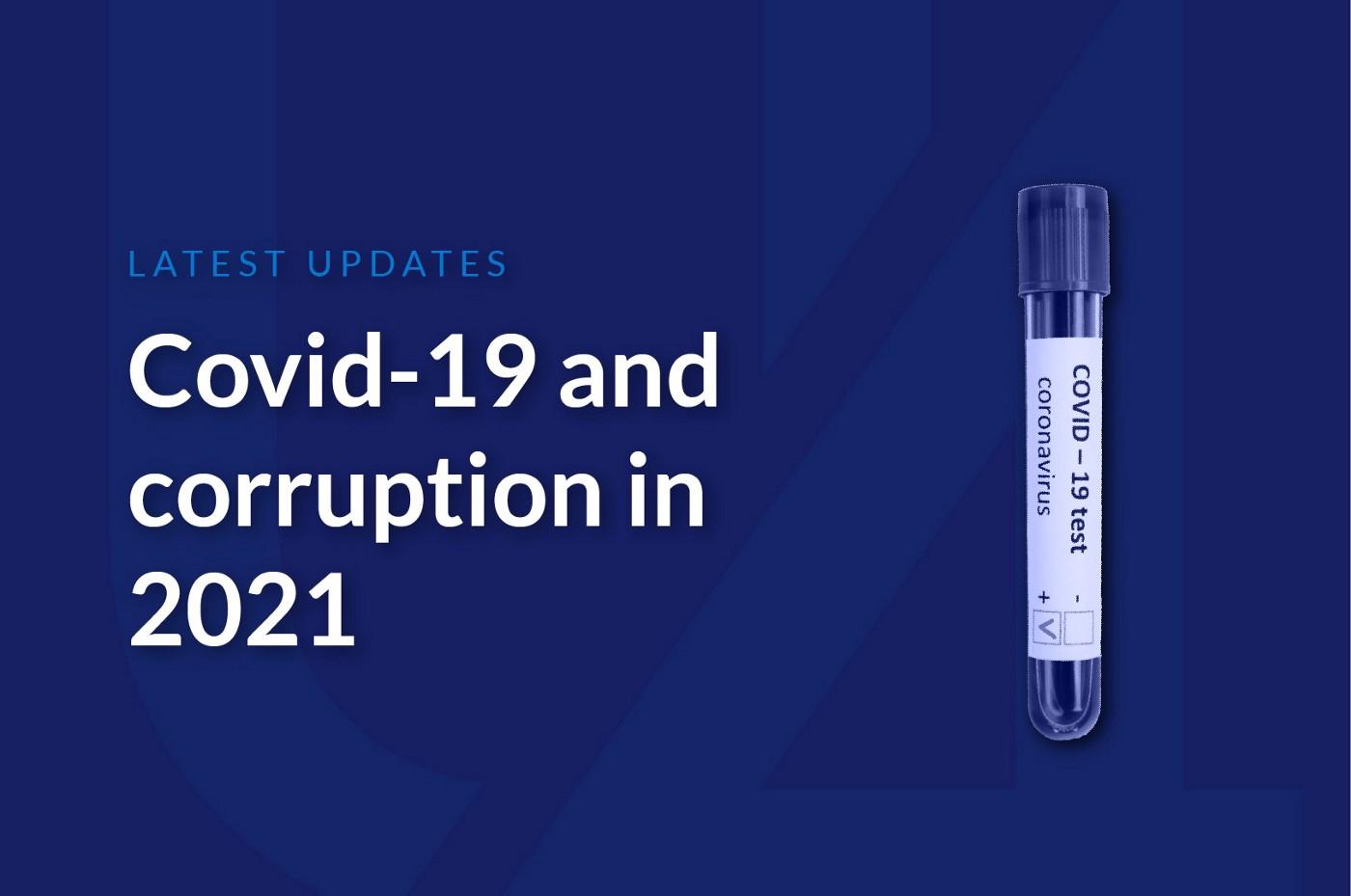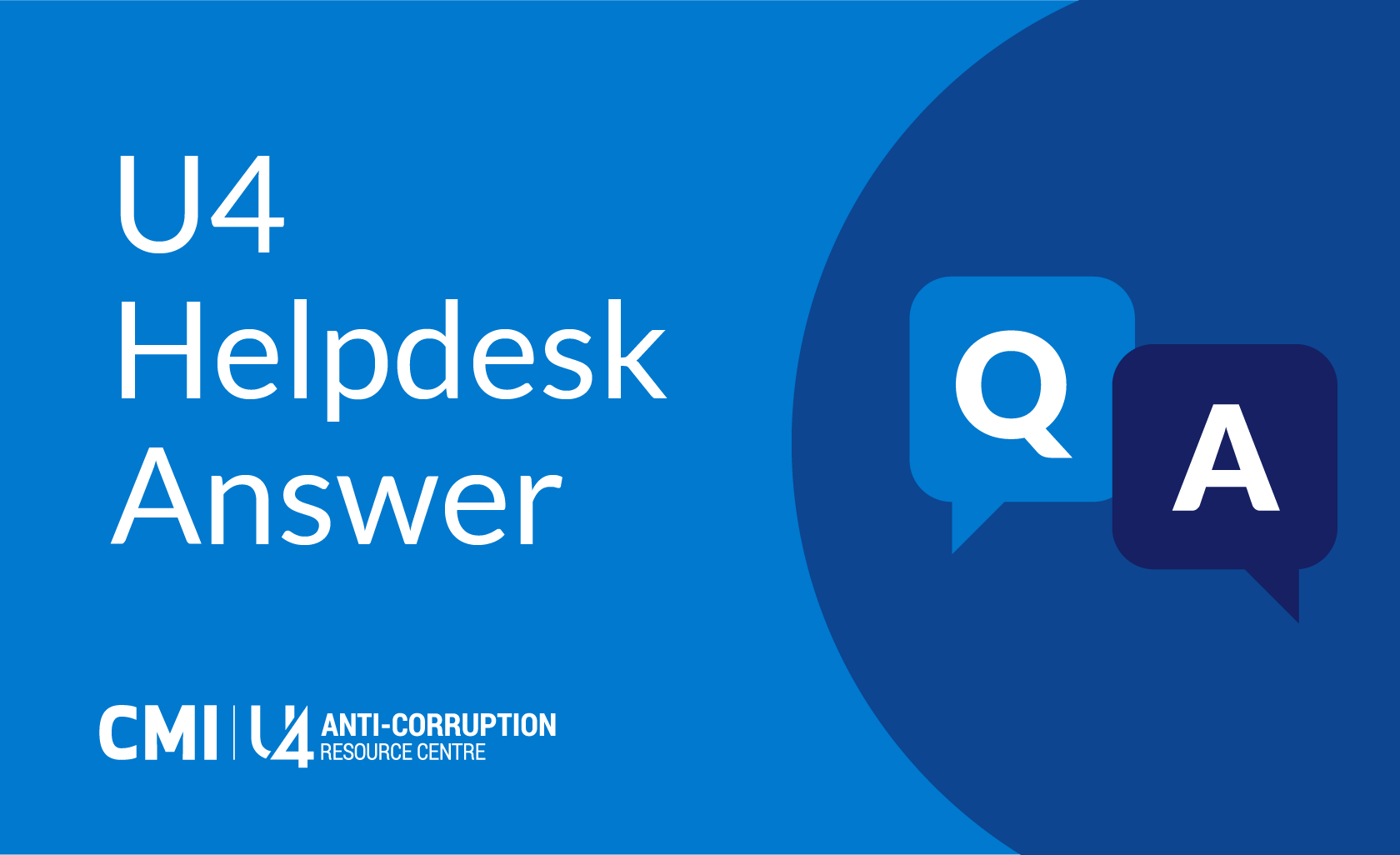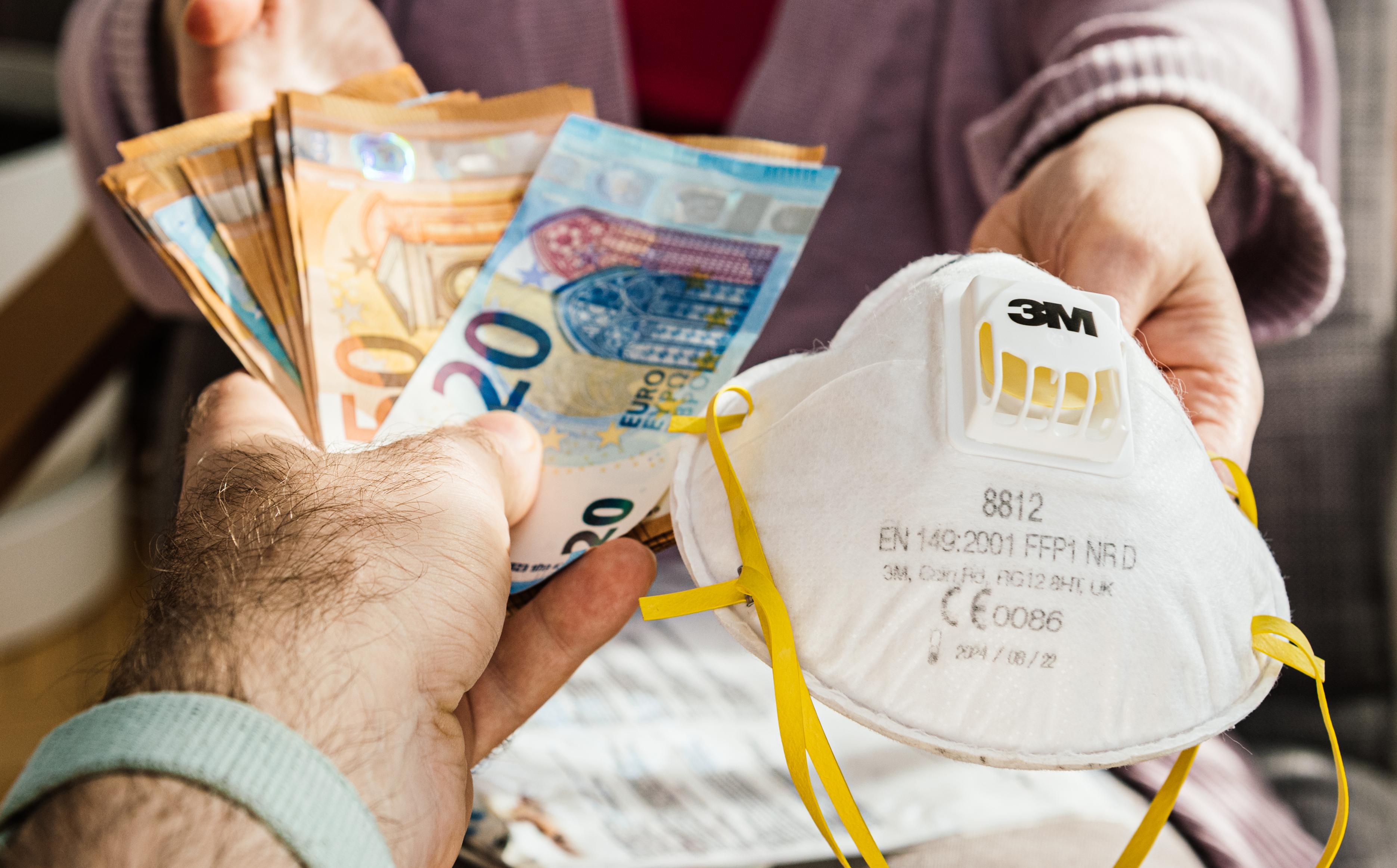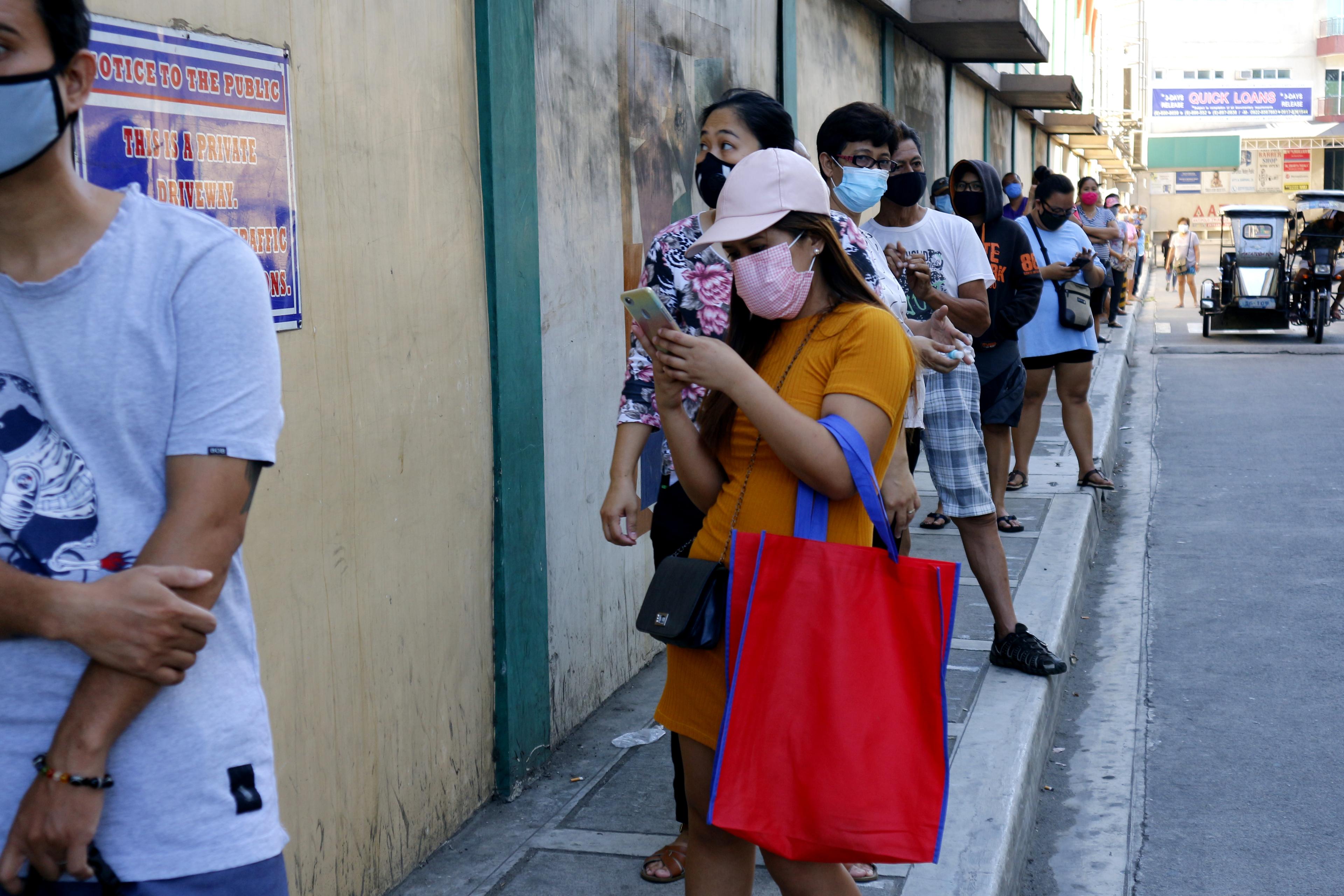Blog
Covid-19 corruption in 2021: Late-May–July developments

In mid-July worldwide Covid-19 cases grew by at least 12%. The Delta variant that ravaged India has now spread to 124 countries and is taking a particular toll in developing countries, especially Indonesia and South Africa, which have reported record case numbers.
In Africa, particularly southern Africa, recent developments have been catastrophic. The limited supply of vaccines, uneven vaccination rates, and the spread of the Delta variant have lead to soaring infection and death rates. In mid-July, Africa recorded a 43% weekly rise in Covid-19 deaths. Yet, only 2% of its population had received at least one dose. Meanwhile, more than 80% of global vaccinations have occurred in high-income and upper-middle income countries.
There is now clear evidence that vaccines can effectively reduce hospitalisation and mortality rates. Despite this, G7 countries remain reluctant to allow patent sharing. Even though South Africa will host the first Covid-19 mRNA vaccine technology transfer hub, to allow a South African consortium to manufacture vaccines, this alone will not solve the problems of vaccine nationalism and hoarding.
In the meantime, the vaccine-sharing programme COVAX is running out of vaccines, yet tens of millions of global health workers are still not vaccinated. On the other hand, African nations have destroyed more than 450,000 expired doses. We are seeing how disrupted supply chains, poor infrastructure and minimal global solidarity are all exacerbating the crisis.
On top of all this, corruption’s impact continues to loom over countries’ pandemic responses, threatening progress to counter its spread. We present a summary of Covid-19 corruption between late May and July 2021:
1. Service delivery corruption is proliferating.
In the last few months, cases of patronage, theft, falsified vaccines, overpricing, bribes, and the expansion of black markets have affected the accessibility and quality of jabs in many countries.
- In Lebanon, a ‘vaccine for votes’ system is in full flow: in June, leaders were found bribing their constituents with free Covid-19 vaccines ahead of next year’s elections.
- Black markets for fake Covid-19 vaccines, vaccination cards, and/or Covid tests are thriving in Saudi Arabia, Italy, Russia, Kazakhstan, and Venezuela. Vaccine hesitancy is driving the demand for fake vaccination cards in Saudi Arabia, Italy, Russia, and Kazakhstan. In Venezuela, the government’s slow and obscure rollout of vaccines has left many desperate to get Covid-19 vaccines on the black market. In Lara state, at least 2,000 people were inoculated with jabs made of boiled water, antibiotics and analgesics, at a cost of US$100–450 each.
- Fake vaccines have also been found in Uganda, India and the US. In India, for example, 12 fake vaccination drives took place around Mumbai in May and June, with several doctors and medical workers implicated in the fraud. The global Covid-19 vaccine market is valued at US$150 billion, which makes it an attractive target for criminals and corrupt healthcare professionals.
- In Uganda, the Kampala Capital City Authority was asked to account for 21,000 doses that went missing in June. Police also started investigating the theft of 600 AstraZeneca doses that had been found in two private clinics in Kampala.
- Hospitals have also been accused of profiteering in Peru and Uganda. In Peru, the police dismantled an alleged criminal ring that charged US$21,000 per bed for seriously ill Covid-19 patients in a state-run hospital. In Uganda, families of Covid-19 patients are being presented with bills of up to US$15,000 for intensive care treatment: an excessive amount in a country where the average wage is less than US$1,000 per year.
2. Evidence of large-scale theft and mismanagement of Covid-19 funds keeps mounting.
Recently, Human Rights Watch has called on the International Monetary Fund (IMF) to make a three-year loan sought by Cameroon contingent on anti-corruption measures. The IMF previously disbursed two emergency loans of US$382 million to Cameroon, but despite commitments, government spending lacked transparency. In May, an audit uncovered large-scale corruption and mismanagement of 180 million Central African francs (US$333 million) meant for the Covid-19 response in 2020.
3. Procurement corruption is as prevalent as ever.
In the last few months, allegations of procurement corruption have arisen in South Africa, Brazil, Bangladesh, and Guatemala.
- South Africa’s Minister of Health was sent on leave whilst an ongoing investigation revises contracts irregularly awarded to a communications service provider for 150 million rand (over US$10 million).
- Brazil’s Supreme Court Justice is investigating the Health Ministry’s purchase order of 20 million doses of the Covaxin vaccine, which had not yet completed clinical trials or been approved by regulators.
- Bangladeshi activists found large discrepancies in what the government was paying for the Sinopharm vaccine. A government committee approved the purchase of 15 million doses at US$10 per dose, but a separate order of 3.15 million doses cost the government US$100 per dose, leading some to suspect corruption.
- Lastly, the Guatemalan government has not released details about their purchase of 16 million doses of Sputnik V for US$160 million. As of early July, only 350,000 were available in the country and public anger over the situation is leading to calls for the president to step down. A similar situation in Brazil – including slow progress on vaccines and payments to corrupt officials – has sparked calls for President Bolsonaro’s impeachment.
4. Unethical research on Covid-related medical treatments contributes to disinformation.
In July, an academic study highlighting the benefits of ivermectin – a drug used against parasites – in treating Covid-19 was taken down due to ethical concerns. Several paragraphs in the study were plagiarised, its raw data contradicted the study’s protocol on many occasions, and there were at least 79 patient records that were clones of other records.
5. Endemic corruption prior to Covid-19 endangers lives during the pandemic.
In July, a fire broke out in a hospital in Nasiriya, southern Iraq, killing more than 90 people in the Covid-19 isolation ward. For decades, institutionalised corruption has resulted in large shares from health budgets being captured by corrupt actors during contracting processes. This has left the Iraqi health sector short of equipment, with poor infrastructure, and unable to provide quality services. In the case of Nasiriya, there were no working fire extinguishers and the ward had been built with cheap and flammable materials.
Despite the incidence of corruption in the last few months, there have also been efforts to bring about transparency and accountability in pandemic responses, including vaccination plans.
- Opening up and publishing data can help address corruption in various aspects of the Covid-19 response. In Paraguay, the Health Ministry has published a public database, which lists everyone who has be inoculated with Covid-19 vaccines, to tackle queue jumping. The database includes the person’s name, place of vaccination, type of vaccine, and number of doses. In Colombia, Costa Rica, France, and Peru, there are specific transparency portals publishing comprehensive government spending information, including on Covid-19. Romania is analysing beneficial ownership data and financial disclosures of senior public officials to identify conflicts of interest.
- External audit of pandemic spending is a crucial way to prevent and curb corruption. In South Korea there are frequent external audits to monitor pandemic-related spending. Spain is also publishing guidelines for emergency procurement.
- Pandemic aid conditionalities are being used to enhance anti-corruption. The IMF, World Bank, and Islamic Development Bank (IDB) recognise that Covid-19 related spending needs to be conditional. Measures to which it could be tied include governments’ publication of pandemic-related procurement contracts and the beneficial ownership of companies awarded these contracts, independent auditing, and continuous Covid-19 spending reports. To meet these standards, countries such as Kenya and the Kyrgyz Republic have adopted permanent reforms on issues like the publication of contract information and beneficial ownership.
You can find our update of developments around Covid-19 corruption from April–May 2021 here.
Disclaimer
All views in this text are the author(s)’, and may differ from the U4 partner agencies’ policies.
This work is licenced under a Creative Commons Attribution-NonCommercial-NoDerivatives 4.0 International licence (CC BY-NC-ND 4.0)


